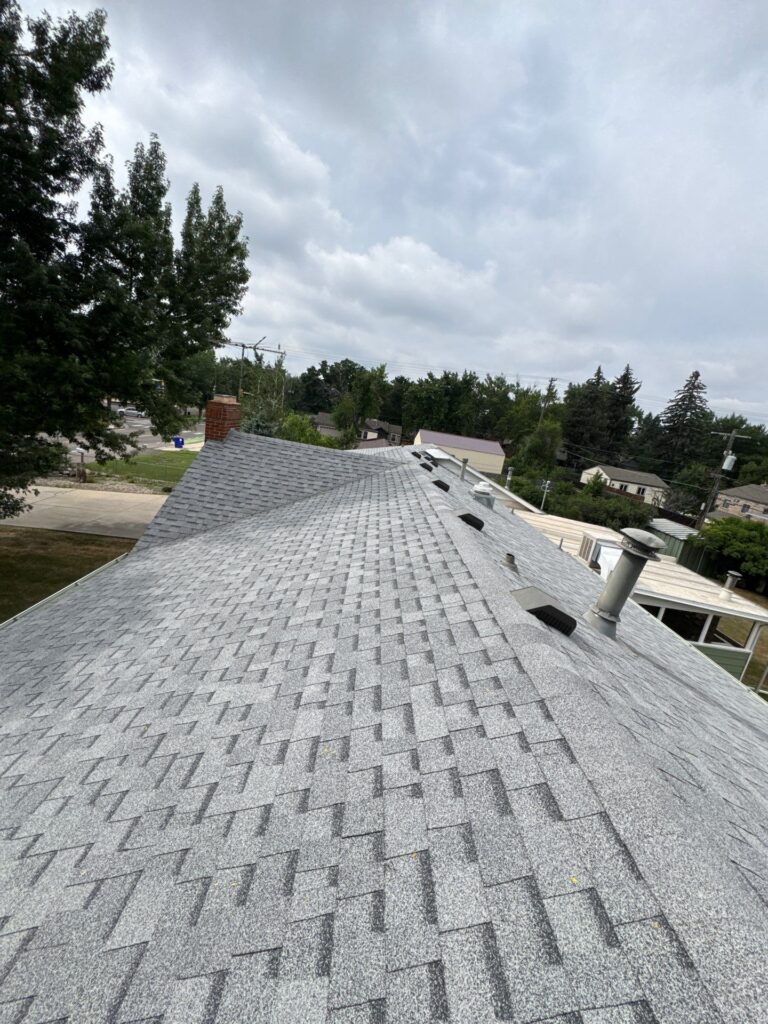
Average Lifespan of Roofs in Denver
The typical lifespan of a roof in Denver ranges from 15 to 30 years, though some premium materials can last much longer. The city’s high altitude, intense sun, heavy snow, and sudden weather shifts significantly affect how long roofing materials perform. Manufacturer warranties may extend up to 50 years, but real-world durability depends on both material choice and regular maintenance.
Factors That Impact Roof Longevity
Denver’s climate puts unique pressure on roofing systems.
- Snow and Ice: Heavy accumulation can stress and weaken roof structures.
- UV Radiation: Strong sun at high altitude accelerates material breakdown.
- Temperature Swings: Rapid changes from warm days to freezing nights expand and contract materials.
- Roof Design: Steep-slope roofs shed snow and water better than flat roofs.
Roofing Materials and Their Lifespans
Different roofing materials deliver different performance in Denver’s demanding weather.
- Asphalt Shingles: Typically last 15–30 years, making them an economical and popular option.
- Wood Shingles & Shakes: 25–40 years; attractive but require attentive care to resist moisture.
- Metal Roofing: 40–70 years; resistant to snow, hail, and fire; premium metals can exceed 100 years.
- Clay & Concrete Tile: 50–100 years; durable and weather-resistant, though heavy.
- Slate Roofing: 100+ years; highly durable and elegant but costly.
- TPO and Rubber Roofs: 15–30 years; commonly used for flat or low-slope structures.
Denver’s Weather Challenges
Local weather creates some of the toughest conditions for roofing.
- Winter Storms: Heavy snow and ice can lead to leaks or collapses.
- Spring Rains: Persistent moisture raises the risk of water damage.
- High Winds: Gusts of 70–90 mph may tear away shingles and flashing.
- Hailstorms: Impact damage often requires immediate repair or full replacement.
The Importance of Roof Maintenance
Routine care dramatically extends the life of a roof. Regular inspections can identify missing shingles, flashing damage, clogged gutters, or signs of leaks before they become major issues. Proper attic insulation and ventilation help reduce moisture problems and stop the formation of ice dams. Most experts recommend professional inspections at least twice per year.
Signs It’s Time to Replace Your Roof
Homeowners should watch for clear indicators of roof failure:
- Leaks or water stains indoors
- Curling, cracked, or missing shingles
- Granule loss visible in gutters
- Sagging rooflines or structural dips
- Moss or algae growth that persists despite cleaning
Maximizing Roof Lifespan
To make a roof last longer, combine quality materials with professional installation and ongoing care. Trimming nearby trees, keeping gutters clear, and repairing storm damage quickly all play a role. In Colorado, many homeowners rely on experienced contractors like Tried and True Roofing to handle these challenges with expert service.
Conclusion
Roofs in Denver last anywhere from 15 years to more than a century depending on materials, weather, and maintenance. Asphalt shingles provide affordable protection but need earlier replacement, while slate and metal offer superior longevity. Given the city’s extreme climate, choosing the right roofing system and scheduling consistent maintenance ensures long-term durability, energy efficiency, and peace of mind for homeowners.

